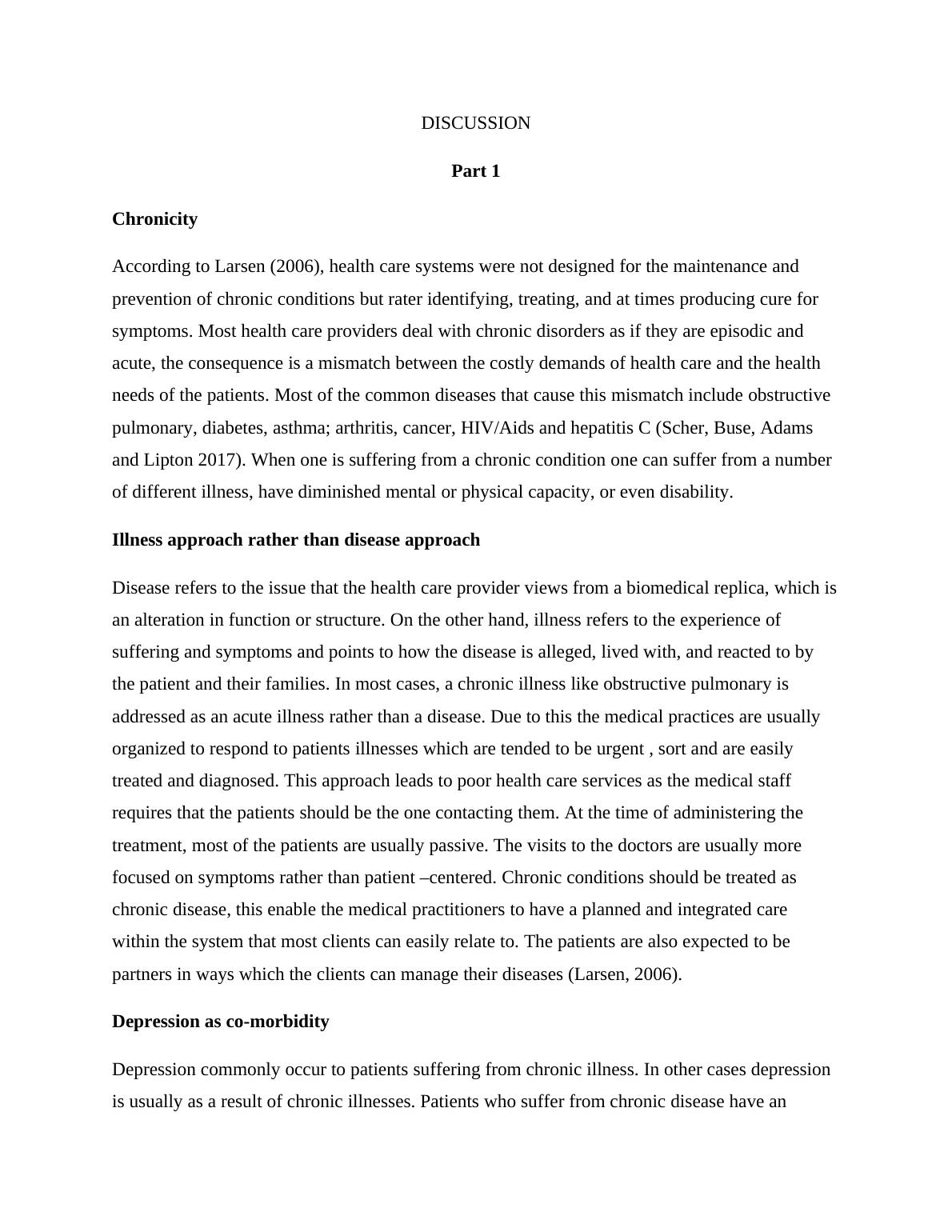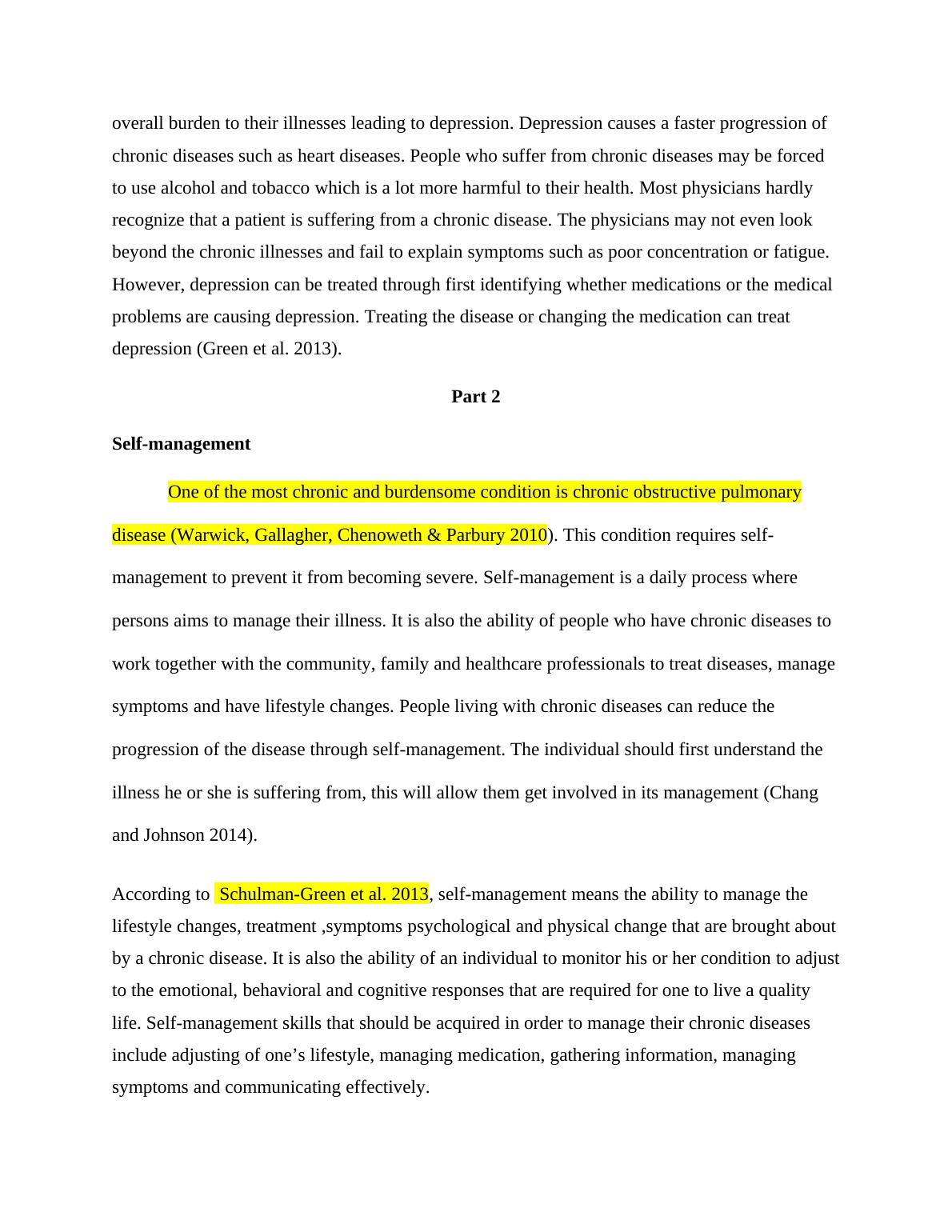NURS501 - Integrated Nursing Concepts Report
Auckland University of Technology
Integrated Nursing Knowledge and Assessment (NURS501)
Added on 2020-03-01
About This Document
NURS501 - Integrated Nursing Concepts Report, health care systems were not designed for the maintenance and prevention of chronic conditions but rather to identify, treat, and at times produce cures for symptoms. Most health care providers deal with chronic disorders as if they are episodic and acute, the consequence is a mismatch between the costly demands of health care and the health needs of the patients. The issue that the health care provider views from a biomedical replica are an alteration in function or structure.
NURS501 - Integrated Nursing Concepts Report
Auckland University of Technology
Integrated Nursing Knowledge and Assessment (NURS501)
Added on 2020-03-01
End of preview
Want to access all the pages? Upload your documents or become a member.



